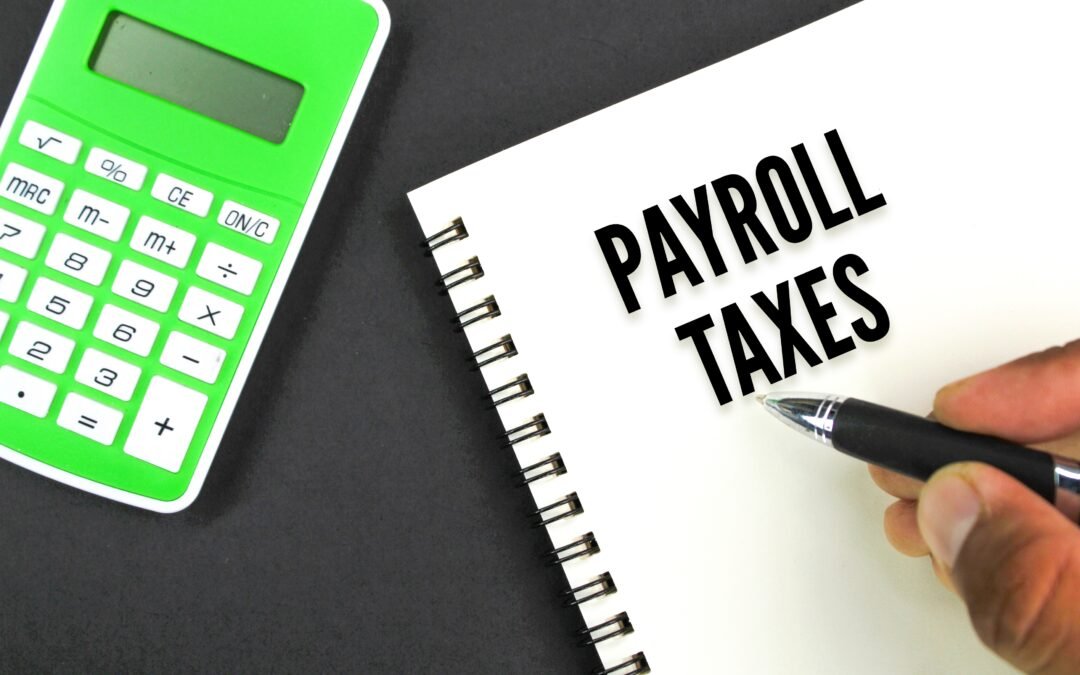
by Abdul Wahab | Oct 15, 2024 | Taxation
Navigating the complexities of tax regulations can feel overwhelming, especially when trying to ensure compliance while maximizing your financial benefits. Whether you’re self-employed, a small business owner, or just someone trying to make sense of the tax landscape, getting expert tax advice can make all the difference. In this blog post, we answer some of the most common tax-related questions to help you stay informed and confident about your tax obligations.
1. What Expenses Can I Deduct as a Small Business Owner?
As a small business owner, you are entitled to deduct certain business expenses to reduce your taxable income. These expenses must be incurred “wholly and exclusively” for business purposes. Here are some of the most common deductible expenses:
- Office Costs: Rent, utilities, phone, and internet bills for your business premises.
- Travel Expenses: Business-related travel, including mileage, public transport, and accommodation costs.
- Staff Costs: Wages, salaries, bonuses, and pension contributions.
- Marketing and Advertising: Costs for business promotion, including website development, online ads, and print materials.
- Professional Services: Fees paid for legal advice, accounting services, or consultancy.
For more details, visit the UK Government’s official guide on allowable expenses.
2. How Can I Reduce My Tax Bill?
Reducing your tax bill isn’t about avoiding taxes but rather making sure you’re taking full advantage of allowances, deductions, and tax credits that are legally available to you. Some key strategies include:
- Claim All Deductions: Ensure you’ve claimed all allowable business expenses and other deductions, such as home office use or vehicle mileage.
- Maximize Personal Allowance: For the 2023/2024 tax year, you can earn up to £12,570 tax-free.
- Marriage Allowance: If you’re married or in a civil partnership, you can transfer 10% of your personal allowance to your partner if they earn less.
- Invest in Tax-Efficient Accounts: Utilize Individual Savings Accounts (ISAs) or pensions to shelter your savings and investments from tax.
If you’re unsure, consult a tax professional to review your financial situation and identify more personalized strategies.
3. When Is the Deadline for Filing My Tax Return?
For most individuals and businesses in the UK, the deadline for filing your self-assessment tax return depends on how you submit it:
- Paper Filing: Must be submitted by 31 October following the end of the tax year.
- Online Filing: Must be submitted by 31 January after the tax year ends.
For example, for the 2023/2024 tax year, the deadline for paper returns is 31 October 2024, and the deadline for online returns is 31 January 2025. It’s critical to meet these deadlines to avoid penalties and interest charges.
Check the HMRC website for the latest deadlines and filing details.
4. What Happens If I Miss the Tax Deadline?
Missing the tax return deadline can result in penalties and interest charges. Here’s what you can expect if you miss filing or payment deadlines:
- Missed Filing Deadline: An immediate £100 fine if you’re late by up to 3 months. Additional penalties may apply after 3, 6, and 12 months.
- Missed Payment Deadline: Interest is charged on the outstanding tax, starting from the day after the due date. The longer the payment is delayed, the more penalties will accumulate.
If you are unable to meet the deadline, it’s important to contact HMRC as soon as possible. In some cases, you may be able to arrange a Time to Pay Agreement, allowing you to settle your tax bill in instalments.
5. Should I Hire an Accountant or Handle My Taxes Myself?
Whether to handle your taxes on your own or hire an accountant depends on the complexity of your financial situation. Here’s a quick guide to help you decide:
- Hire an Accountant If:
- Your business income is complex with multiple sources.
- You struggle to keep up with tax laws and deductions.
- You want expert advice on reducing your tax liability.
- You are concerned about making errors that could lead to penalties.
- Do It Yourself If:
- You have a simple tax situation, such as being employed with only one source of income.
- You have the time and confidence to stay on top of tax changes and regulations.
- You are comfortable using tax software to file returns.
An accountant can provide tailored advice, ensure your tax return is accurate, and potentially save you more money in the long run by maximizing deductions and allowances.
6. How Can I Stay Organized for Tax Season?
Staying organized throughout the year makes filing taxes much easier. Here are some tips to help you stay on top of your finances:
- Track Your Income and Expenses: Use accounting software like QuickBooks or Xero to manage your finances and generate reports at tax time.
- Save Receipts: Keep digital or physical copies of all receipts and invoices, especially for business expenses, to claim deductions.
- Set Up a Separate Bank Account: For self-employed individuals, keeping a separate bank account for business income and expenses simplifies tracking.
- Plan for Tax Payments: Estimate your tax liability and set aside money throughout the year to avoid surprises at tax time.
Being proactive with your financial organization will help you avoid stress and potential errors during tax season.
7. How Does VAT Work for Small Businesses?
If your business’s taxable turnover exceeds £85,000, you must register for Value Added Tax (VAT) with HMRC. VAT is a tax on goods and services, and once registered, you’ll need to charge VAT to your customers and submit VAT returns quarterly.
- Standard VAT Rate: 20% (as of 2024).
- Flat Rate Scheme: Small businesses with turnover under £150,000 can simplify VAT accounting by paying a fixed percentage of their total turnover.
To ensure VAT compliance and avoid penalties, it’s advisable to consult a VAT specialist or accountant to help you manage VAT returns.
Conclusion
Filing taxes and managing your financial obligations doesn’t need to be stressful. By understanding your tax responsibilities and seeking expert tax advice, you can stay organized, maximize deductions, and avoid costly mistakes. Whether you’re a small business owner or self-employed, it’s essential to stay informed and proactive throughout the year.
Still feeling uncertain about your tax situation? Don’t worry—our expert team is here to help. Whether you need assistance with filing your tax return, understanding deductions, or managing your business finances, we’ve got you covered. Contact us today for personalized tax advice and guidance to ensure you’re on the right track. Let us simplify the process so you can focus on what matters most—growing your business!

by Abdul Wahab | Oct 15, 2024 | Bookkeeping
Bookkeeping is a fundamental aspect of running a successful small business. Proper bookkeeping ensures you can track your income and expenses, maintain financial health, and prepare for tax filing with ease. For small business owners, effective bookkeeping is not just about balancing books, but also about creating a solid financial foundation that supports growth. In this guide, we’ll explore the most effective bookkeeping tips that every small business should follow.
1. Separate Business and Personal Finances
One of the first and most important rules of bookkeeping is to separate your business and personal finances. Mixing the two can lead to confusion, errors, and difficulty in tracking expenses and income. By maintaining separate business bank accounts and credit cards, you’ll:
- Make it easier to track business expenses.
- Avoid potential tax issues.
- Create a more professional image for your business.
Opening a business account from the start ensures that all your financial records stay clean and accurate.
2. Use Cloud-Based Bookkeeping Software
In today’s digital age, cloud-based bookkeeping software is a game-changer for small businesses. Tools like QuickBooks, Xero, and FreshBooks simplify the bookkeeping process by automating many tasks such as expense tracking, invoicing, and financial reporting.
Key benefits of using bookkeeping software include:
- Real-time data access: View your business’s financial health from anywhere.
- Automatic backups: Protect your data with cloud storage.
- Easy tax preparation: Automatically generate reports for tax filing.
By adopting the right software, you’ll save time, reduce manual errors, and stay on top of your finances.
3. Track All Expenses
Tracking every business expense is crucial for maintaining accurate financial records. Whether it’s small purchases or large expenses, keeping track of everything ensures that you have a full picture of where your money is going.
Tips for tracking expenses:
- Save receipts: Use a system to store digital or physical copies of receipts.
- Categorize expenses: Use categories such as office supplies, utilities, travel, and marketing to make reporting easier.
- Use software: Bookkeeping software can automatically categorize expenses and track them in real-time.
This habit not only ensures accurate records but also makes it easier to claim tax deductions for business-related expenses.
4. Stay on Top of Invoicing
Cash flow is the lifeblood of any small business. One of the most effective ways to maintain steady cash flow is by staying on top of your invoicing.
Here’s how:
- Send invoices promptly: As soon as a job is completed, send the invoice. Don’t wait too long.
- Set clear payment terms: Ensure your invoices include payment due dates and terms to avoid late payments.
- Follow up on overdue payments: Create a system to follow up with clients who miss their payment deadlines.
Using cloud-based invoicing tools within bookkeeping software can automate reminders and help you keep track of outstanding payments.
5. Regularly Reconcile Your Accounts
Reconciling your business accounts means comparing your financial records with your bank statements to ensure they match. This should be done regularly, typically at least once a month.
Benefits of account reconciliation:
- Catch errors early: Spot discrepancies such as double payments or missed entries.
- Prevent fraud: Regular reconciliation helps identify any unauthorized transactions.
- Stay updated: Get a clear picture of your current cash position.
By reconciling your accounts frequently, you’ll keep your financial records accurate and up-to-date, reducing the risk of errors.
6. Set Aside Time for Bookkeeping
Running a small business can be hectic, but it’s essential to dedicate regular time for your bookkeeping tasks. Waiting until the end of the month or year can lead to a backlog of work, making it harder to stay organized.
- Schedule weekly or bi-weekly sessions to update your books, categorize transactions, and reconcile accounts.
- Use reminders: Set reminders to ensure that you never miss important bookkeeping tasks.
By regularly setting aside time for bookkeeping, you’ll ensure that your records stay current and accurate.
7. Prepare for Tax Season Year-Round
Many small businesses face challenges during tax season because they haven’t kept their financial records up to date throughout the year. By preparing for tax season year-round, you can avoid last-minute stress and penalties.
Tax preparation tips:
- Track deductible expenses: Ensure all allowable business expenses are recorded and categorized.
- Generate regular financial reports: Use software to create profit and loss statements, balance sheets, and cash flow reports.
- Set aside tax payments: Estimate your tax liability and set aside money for it in a separate account.
By staying on top of your bookkeeping throughout the year, you’ll be ready when tax season arrives.
8. Consult a Professional Accountant
While cloud-based software and DIY bookkeeping can work for many small businesses, consulting a professional accountant is still a good idea. An accountant can help with:
- Tax planning: Optimize your tax strategy to minimize liabilities.
- Financial advice: Offer insights into your financial data and help you make informed decisions.
- Ensuring compliance: Make sure your business complies with all relevant tax laws and regulations.
Even if you manage most of your bookkeeping tasks on your own, having a professional review your accounts periodically can help ensure accuracy and avoid potential issues.
Conclusion
Effective bookkeeping is the backbone of a well-organized and successful small business. By separating your finances, using cloud-based software, and keeping meticulous records, you can streamline your financial processes and avoid common mistakes. Regularly reconciling your accounts, staying on top of invoicing, and preparing for tax season throughout the year will help your business maintain a healthy cash flow and keep you prepared for any financial challenges.
By implementing these bookkeeping tips, you’ll have more time to focus on growing your business, with the peace of mind that your finances are in order.
Need Professional Help with Your Bookkeeping?
If you find bookkeeping overwhelming or simply don’t have the time to manage it yourself, our expert accounting team can help. Contact us today for professional bookkeeping services tailored to your business needs. We’ll ensure your financial records are accurate, tax-ready, and compliant with UK regulations—so you can focus on running and growing your business.
Contact Us to get started and simplify your bookkeeping today!

by Abdul Wahab | Oct 15, 2024 | Taxation
Filing your tax return might seem like a daunting task, but with a bit of preparation and knowledge, you can handle it efficiently and avoid unnecessary stress. Whether you’re a freelancer, small business owner, or someone with other sources of income, it’s essential to know the ins and outs of self-assessment tax returns in the UK. In this guide, we’ll break down the steps to filing your tax return and provide some helpful tips to make the process easier.
Who Needs to File a Tax Return?
In the UK, most people pay their income tax automatically through Pay As You Earn (PAYE) if they are employed. However, some individuals need to file a self-assessment tax return to report their income and pay any tax owed. You are required to file a tax return if:
- You are self-employed or a freelancer.
- You earned over £1,000 from self-employment.
- You receive rental income from property.
- You have income from savings, investments, or dividends.
- You earn foreign income.
- You are a higher-rate taxpayer with untaxed income (e.g., income not taxed through PAYE).
The self-assessment tax return must be filed online or by paper, but the deadlines differ for each method (more on that below).
Step-by-Step Guide to Filing Your Tax Return
1. Register for Self-Assessment
If you’re filing a tax return for the first time, the first step is to register for self-assessment with HMRC. You must do this by 5 October following the end of the tax year in which you earned the income.
2. Gather Your Financial Information
Before you start filing your tax return, make sure you have all the necessary financial documents and information ready. This will include:
- Payslips and P60/P45 forms (if you have employment income).
- Invoices and details of business income if you’re self-employed.
- Bank statements or records of dividends, interest, and other investments.
- Rental income details if you receive money from letting property.
- Expense records: Keep track of all business expenses and other deductible costs like office supplies, utilities, and travel.
Ensure you keep accurate records of your income and expenses, as HMRC may ask for proof in case of an audit.
3. Choose the Right Tax Return Form
You’ll need to fill out different sections of the tax return depending on your circumstances:
- SA100: The main tax return form.
- SA103: For self-employed income.
- SA105: For income from property.
- SA102: For employment income.
If you file online, the system will guide you through the relevant forms based on the answers you provide.
4. Claim Tax Deductions and Reliefs
Make sure to claim any allowable expenses and tax reliefs that apply to you. These can significantly reduce the amount of tax you owe. Common tax-deductible expenses for freelancers and self-employed individuals include:
- Office supplies and equipment.
- Travel and subsistence costs.
- Business insurance.
- Marketing and advertising.
Additionally, you can claim personal allowances, such as:
- Personal Allowance: Up to £12,570 of income can be tax-free (for the 2023/2024 tax year).
- Marriage Allowance: Transfer part of your allowance to your spouse if they earn less.
5. File Your Tax Return Online
Filing your tax return online through the HMRC website is quicker and more efficient. You’ll receive instant confirmation when your return is submitted, and any tax due will be calculated automatically.
Deadlines for filing:
- Paper filing: 31 October after the end of the tax year.
- Online filing: 31 January after the end of the tax year.
For example, for the 2023/2024 tax year, the deadline for paper filing is 31 October 2024, and the deadline for online filing is 31 January 2025.
6. Pay Your Tax Bill
Once you’ve submitted your return, HMRC will calculate how much tax you owe (or how much is due to be refunded). You’ll need to pay any tax owed by 31 January following the tax year you’re reporting on. HMRC may also require payments on account for the next tax year, which is typically 50% of your estimated tax liability.
Payment methods include:
- Direct debit.
- Bank transfer.
- Credit or debit card.
Tips to Make Filing Your Tax Return Easier
- Start Early: Don’t leave your tax return until the last minute. Start gathering your financial records well before the deadline.
- Use Accounting Software: Software like QuickBooks, Xero, or FreeAgent can simplify the process by automating your expense tracking, invoicing, and financial reporting.
- Claim All Deductions: Ensure you claim all the allowances and deductions you’re entitled to, as this can significantly reduce your tax liability.
- Keep Your Records Organised: Keeping clear and organised records throughout the year will make tax season much easier.
- Consult a Tax Advisor: If your tax affairs are complex, or if you’re unsure about any aspects of tax filing, consult a professional accountant or tax advisor.
Common Mistakes to Avoid When Filing Your Tax Return
- Missing the Deadline: Failing to meet the deadline can result in penalties and interest charges, so always aim to file ahead of time.
- Failing to Report All Income: Make sure all your income is reported, even if it’s from different sources.
- Not Claiming Allowable Expenses: Many freelancers forget to claim allowable expenses that could lower their tax bill.
- Ignoring Payments on Account: If your tax bill is large, you may need to make payments on account for the following tax year.
Conclusion
Filing your tax return doesn’t need to be overwhelming. By following these steps and staying organised throughout the year, you can manage your taxes effectively and avoid unnecessary penalties. Using accounting software or seeking help from a tax professional can also simplify the process and ensure that your tax return is accurate and on time.
Stay ahead of tax deadlines, keep your records up to date, and make sure you understand your tax obligations to run your business smoothly and successfully.
This post is designed to simplify the tax filing process for UK freelancers and small business owners, providing essential tips and steps for successful tax returns.

by Abdul Wahab | Oct 15, 2024 | Accounting
As a freelancer, managing your finances efficiently is crucial for success. Choosing the right accounting software can simplify your bookkeeping, save time, and help you stay on top of tax obligations. In this guide, we explore some of the best software tailored for freelancers to help you manage invoicing, expense tracking, and tax preparation with ease.
Key Features to Look for in Accounting Software for Freelancers
When choosing the right freelancer accounting software, it’s important to consider these essential features:
- Invoicing: Generate and send professional invoices to clients quickly.
- Expense Tracking: Categorize and track your business expenses for easier tax preparation.
- Time Tracking: Keep an accurate log of your work hours to ensure you’re billing clients correctly.
- Tax Preparation: Provide helpful tools and reports to make tax filing easier.
- Financial Reporting: Generate financial reports like profit and loss statements and balance sheets to monitor your business performance.
- Integration with Other Tools: Sync with project management, payment processors, and other tools to enhance workflow efficiency.
- Cloud-Based: Access your accounting information anywhere with an internet connection for greater flexibility.
Top Accounting Software Options for Freelancers
Here are some of the best online software options that can simplify financial management for freelancers:
- QuickBooks Self-Employed: A popular choice, QuickBooks Self-Employed is specifically designed for freelancers. It offers mileage tracking, expense categorization, and tax preparation tools, helping you stay organized and compliant.
- Xero: Xero is a cloud-based accounting software that offers a comprehensive set of features such as invoicing, expense tracking, and easy tax filing. It’s a great option for freelancers seeking scalability as their business grows.
- FreshBooks: Known for its intuitive interface, FreshBooks includes features like time tracking, expense management, and seamless payment processing, making it ideal for freelancers who need simplicity and functionality.
- FreeAgent: Particularly popular with freelancers in the UK, FreeAgent provides easy-to-use tools for invoicing, expense tracking, and tax preparation, tailored to the unique needs of small business owners.
- Wave: A free accounting software solution, Wave offers essential features like invoicing and expense tracking, with optional paid plans for advanced tools. This is a great option for freelancers looking for a budget-friendly solution.
How to Choose the Right Accounting Software for Freelancers
When selecting the best freelancer accounting software, consider your specific business needs and budget:
- Start with a free or low-cost plan: If you’re just starting out, tools like Wave or entry-level plans from QuickBooks or FreshBooks can meet your needs. As your business grows, you can easily scale to more advanced features.
- Look for scalability: Choose accounting software that grows with your business. If you’re a freelancer planning to expand your offerings, consider solutions like Xero or FreshBooks that offer advanced options as your business evolves.
- Think about integrations: The best accounting software integrates with other business tools like payment processors, project management software, or CRM systems, streamlining your overall workflow.
Additional Tips for Freelancers Using Accounting Software
- Start Early: Don’t wait for tax season to start using accounting software. Early implementation can help keep your finances organized and stress-free.
- Take Advantage of Training Resources: Many accounting software platforms offer tutorials, webinars, and guides to help you get started quickly.
- Regular Backups: Always back up your financial data regularly to prevent potential data loss.
- Consult with a Professional: If you’re unsure about tax laws or proper bookkeeping practices, it’s wise to consult a tax advisor or accountant.
Conclusion
Choosing the best accounting software for freelancers can help you streamline financial tasks like invoicing, expense tracking, and tax preparation. By using one of the tools mentioned above—such as QuickBooks, Xero, FreshBooks, FreeAgent, or Wave—you’ll save time, reduce stress, and gain better insight into your freelance business’s financial health. Book a free consultation with us right away without any hesitation.
Stay ahead of your financial game with the right software and focus on what you do best—growing your freelance business!

by Abdul Wahab | Oct 12, 2024 | Uncategorized
Managing payroll taxes is a crucial responsibility for any business owner in the UK. While they can seem complex, understanding payroll taxes is essential for staying compliant with tax laws and avoiding costly penalties. This beginner’s guide will break down the basics of payroll taxes in the UK to help you stay informed and manage your payroll smoothly.
What Are Payroll Taxes?
Payroll taxes are taxes imposed on employers and employees, deducted from employees’ wages, and paid to HM Revenue and Customs (HMRC) by the employer. These taxes are essential for funding government services, such as the National Health Service (NHS) and social security benefits.
Types of Payroll Taxes
There are two main categories of payroll taxes in the UK: employer taxes and employee taxes.
1. Employer Taxes
Employers are responsible for paying several types of payroll taxes, including:
- National Insurance Contributions (NICs): Contributions paid by employers to fund social security benefits and the NHS.
- Class 1A NICs: Paid on employee earnings above the National Insurance threshold, particularly for directors and employees with higher salaries.
- Class 1B NICs: Paid by employers on earnings for employees who earn below the National Insurance threshold, typically applied in special circumstances.
- Class 2 NICs: Contributions made by self-employed individuals to secure certain state benefits.
- Class 4 NICs: Paid by self-employed individuals with profits exceeding a specific threshold.
- Construction Industry Training Board (CITB) Levy: A tax levied on employers in the construction sector to fund industry training programs.
2. Employee Taxes
Employee payroll taxes are deducted directly from their wages and include:
- Income Tax: Tax on an individual’s income, calculated based on income tax bands.
- National Insurance Contributions (NICs): Employees contribute to social security and NHS funding through NICs, deducted from their wages.
Payroll Tax Rates
Payroll tax rates can change from year to year, depending on government regulations. It’s essential to stay up to date with the latest guidance from HMRC to ensure you’re applying the correct rates for National Insurance Contributions and income tax. Visit the HMRC website for the most current payroll tax rates.
Payroll Tax Deadlines
Payroll tax submission deadlines depend on the size of your business and your payroll schedule. Typically, employers must:
- Submit payroll information to HMRC on or before each payday using Real Time Information (RTI).
- Pay taxes either monthly or quarterly, depending on the business’s PAYE (Pay As You Earn) scheme.
Missing deadlines can incur penalties, so process payroll on time to avoid them. Refer to HMRC’s official guidance for specific deadlines and details.
Payroll Tax Penalties
Failure to comply with payroll tax regulations can result in severe penalties, including:
- Fines for late submissions or incorrect tax filings.
- Interest charges on unpaid taxes.
- Potential audits from HMRC if discrepancies are found in your payroll records.
Avoid penalties by staying compliant and using payroll software or working with an accountant to ensure your taxes are accurate and submitted on time.
Using Payroll Software
Managing payroll taxes manually can be overwhelming. Payroll software simplifies the process by automating payroll calculations, generating reports, and filing tax returns directly with HMRC. Popular payroll software options include Xero Payroll, QuickBooks Payroll, and Sage Payroll. Using payroll software ensures accuracy and compliance, saving you time and reducing the risk of errors.
Conclusion
Understanding payroll taxes is vital for any business owner in the UK. By familiarizing yourself with the various types of payroll taxes, staying updated on the latest tax rates, and meeting deadlines, you can ensure compliance with HMRC’s regulations and avoid costly penalties. If you’re unsure about handling payroll taxes, it’s highly recommended to consult with a professional tax advisor or use payroll software to manage your tax obligations efficiently.
Need help managing your payroll? Contact us today to learn how we can simplify your payroll process and ensure your business stays compliant.





Recent Comments